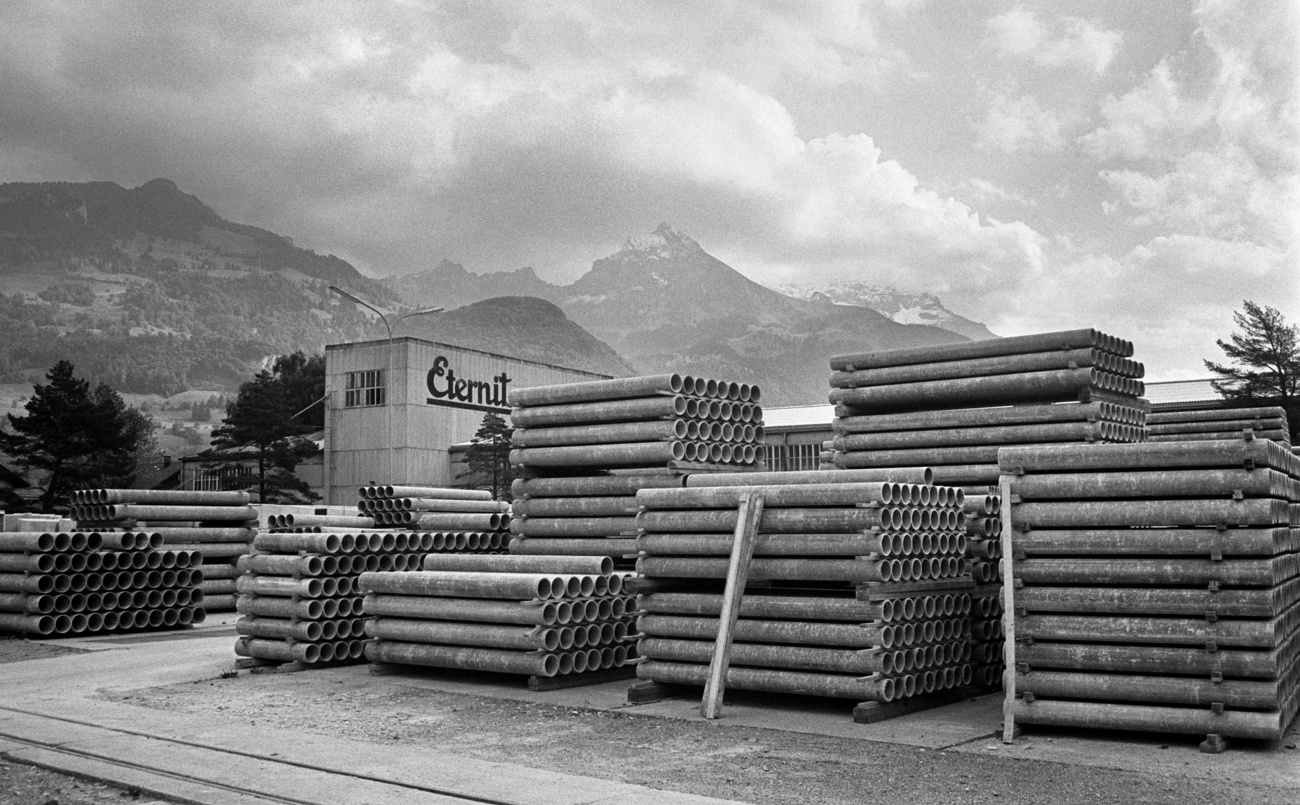
Top Swiss court approves appeal against asbestos ruling

The Glarus high court must re-examine an asbestos compensation case, after the Federal Court approved the survivors' request for a revision of its decision. The European Court of Human Rights had condemned Switzerland in February 2024 for failing to guarantee access to a fair hearing.
+Get the most important news from Switzerland in your inbox
The domestic courts had come to the conclusion that the absolute statute of limitations had expired and that there was therefore no entitlement to compensation. In February 2024, the ECtHR upheld the request by the widow of the deceased and his son.
The ECtHR criticised the application of the absolute limitation period, in particular the point in time from which the period begins to run. The widow and son lodged an appeal with the Federal Court, which was approved in a judgement published on Monday.

More
Switzerland told to compensate surviving dependants of asbestos victim
Marcel Jann died in 2006 as a result of pleural cancer, which was allegedly caused by exposure to asbestos in the 1960s and 1970s. At the time, Jann lived in the immediate vicinity of one of Eternit’s asbestos-processing plants.
Shortly before his death, Jann initiated criminal proceedings for grievous bodily harm. In 2009, his relatives filed a claim for damages against Eternit, the two sons of former company owner Max Schmidheiny.
Last exposure to asbestos
The Federal Court rejected the request for a direct decision on compensation of CHF110,000 ($125,000) because the claim had not yet been examined domestically. Instead, the court limited itself to the absolute statute of limitations.
The question was therefore answered as to whether the absolute limitation period of ten years had elapsed between the last damaging event and the assertion of the claims. In this case, the courts assumed that the last exposure to asbestos took place in 1972, meaning that the absolute limitation period had expired in 1982.

More
What happens when victims cannot get legal remedy in Swiss courts
However, the man’s pleural cancer was not diagnosed until 2004. He died two years later as a result of the disease. While he was still alive, the man took his case to court. His wife and son continued his case.
Start of limitation period is decisive
The Glarus high court must now deal with the relative limitation period. According to the Federal Court, it can also refer the case back to the first instance. The relative limitation period is determined subjectively. This raises the question of when the illness was diagnosed and how much time passed before claims were asserted in court.
Under the old law, this relative limitation period was one year; under the new law, those affected have three years. The absolute limitation period has also been adjusted. In the case of so-called personal injury, it now lasts 20 years; otherwise it is still ten years.
The new law may therefore mean that asbestos victims are unable to reach the court in time, as required by the ECtHR. In its ruling on the present case, the Court criticised in particular the start of the time limit from the time of the last harmful exposure. This will now have to be resolved in Switzerland.
Translated from German with DeepL/gw
This news story has been written and carefully fact-checked by an external editorial team. At SWI swissinfo.ch we select the most relevant news for an international audience and use automatic translation tools such as DeepL to translate it into English. Providing you with automatically translated news gives us the time to write more in-depth articles.
If you want to know more about how we work, have a look here, if you want to learn more about how we use technology, click here, and if you have feedback on this news story please write to english@swissinfo.ch.

In compliance with the JTI standards
More: SWI swissinfo.ch certified by the Journalism Trust Initiative






























You can find an overview of ongoing debates with our journalists here . Please join us!
If you want to start a conversation about a topic raised in this article or want to report factual errors, email us at english@swissinfo.ch.